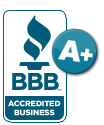
A definition from the North Carolina Superior Court Judges 2008 Summer Conference states that a structured settlement is an arrangement for receiving periodic payments of damages reached in resolution of a tort claim. The damages may be due to physical sickness or injuries as well as workers’ compensation claims.
Structured settlement payments have received increased popularity in the United States since the 1970s and more than $100 billion has been paid to fund them. The payments are usually received on a periodic basis. However, the installment-like payments do not suit every person. Fortunately, it is possible to get a lump sum payment in exchange for structured settlement payments.
Why People Choose to Sell Structured Payments
Some claimants who win payments for damages may receive a structured settlement. Due to a variety of circumstances, however, it may not be convenient to wait for either months or years before receiving the full payout. Although structured payments are meant to help claimants receive a steady flow of income in the future, the rigid schedule that may take many years might make it difficult to meet present needs. Some annuitants decide to get money for their structured settlement payments.
Unfortunately, the claimants may have some immediate needs that make the periodic payments unsuitable, including:
• Paying old debts
• Buying a new house
• Pursuing a business opportunity
• Covering unexpected school or medical charges
• Freeing up more cash flow
• Accelerating long-term payoff schedules
The Drawbacks of Structured Settlements
The structured settlements provide security for the future but cannot be adjusted to meet the present needs of some structured settlement recipients. Structured settlements are most often sold to pay off mounting debt.
How to Overcome the Challenges
It is possible to turn part or all future payments into 1 lump sum payment, which helps in addressing the present opportunities and challenges. Instead of waiting for years to receive payment, the transaction process usually takes between 6-12 weeks.
Factoring companies buy structured settlements at a discount from the claimants; enabling them to get the cash they need in a lump sum instead of waiting to receive periodic payments for years. The companies buy structured settlement payment rights by giving a lump sum amount.
Structured settlement transfers have different terms that take into account a variety of issues, including the amount of lump sum payment the seller requires and the number of payments necessary to fulfill the obligation to the factoring company or investor.
Regulatory Considerations
Controversy used to surround the development of this secondary market, so much so that many states have enacted laws requiring the transfer of payments to receive court approval since 1997. The Internal Revenue Code reinforced the states statutes in 2002 by imposing a 40% federal excise tax on any transfer that does not get the required prior approval.
In spite of the differences in various states, the laws have some common denominators:
• The factoring company (transferee) must make some disclosures highlighting the values of transferred payments, which helps in making a contrast between that value and the value the payee is expected to receive in exchange of the structured settlement.
• The transfer of structured settlement payment rights must receive advance court approval.
• Some of the necessary procedures for seeking approval of the proposed transfers must be spelled out.
• All relevant key terms must be defined.
There are also several statutory provisions that provide supplemental protection to the payees. State courts are generally required to review transfer applications and make appropriate ruling.
Selling Structured Settlement Rights
Before selling a structured settlement right, it is important to determine whether you are eligible to do so. Some of the indicators for eligibility are when future payments are received:
• Following a personal injury, lawsuit or some other claim
• Are not because of worker’s compensation claim
• From an insurance company
• Only during the recipients’ lifetime or in the event of their deaths
• Are tax free
The first step to selling structured settlement rights is finding a suitable buyer. The sellers have a lot of power and must ensure they get the best deal possible. It is always advisable to deal with a reputable factoring company that encourages its clients to consult attorneys before they sign anything. Such a company also has relevant experience in helping clients in need of more cash than their regular payments allow.
A good third party will customize contracts to suit individual requirements and offer the sellers a variety of options.





